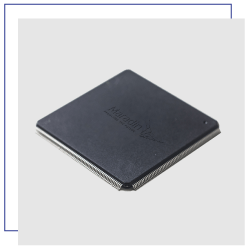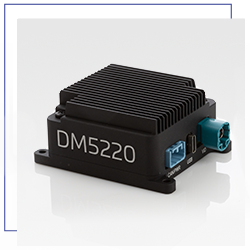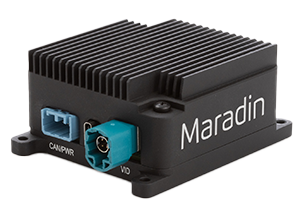Explore our MEMS Mirror
MAR1800S
1D Scanning Mirror- Size: 3.6mmX4.7mm
- Degree of freedom: 1D
- Ramp, Sine
- Point to Point (upon request)
- 2D Raster (with 2xMAR1800)
MAR1800L
1D Scanning Mirror- Size: 3.6mmX8.5mm
- Degree of freedom: 1D
- Ramp, Sine
- Point to Point (upon request)
- 2D Raster (with 2xMAR1800)
MAR1500
1D Scanning Mirror- Size: 1.5mm
- Degree of freedom: 1D
- Ramp, Sine
- Point to Point (upon request)
- 2D Raster (with 2xMAR1500)
MAR1110 Family
2D Scanning Mirror 10kHz
- Size: 1mm
- Degree of freedom: 2D
- Raster, Lissajous
- Automotive compatible
MAR1200 Family
2D Scanning Mirror 30kHz
- Size: 1.1mmX1mm
- Degree of freedom: 2D
- Raster
- Wide optical field of view
Design to Spec
Scanning Mirror and controller
- Size: up to 10mm
- Degree of freedom: 1D/2D
- Wavelengths: 0.2~2um
- Scan pattern: Sine, Ramp, Raster & more
- MEMS and Video controller board
Design to Spec
- Size: up to 10mm
- Degree of freedom: 1D/2D
- Wavelengths: 0.2~2um
- Scan pattern: Sine, Ramp, Raster, Lissajous, Point to Point, Other
- MEMS package
- Controller board
Explore our Controller

Maradin Controllers comprise all driving and control circuits for the MEMS Scanners, in multiple directions and scanning regimes. They are efficient in power and easy to integrate. Maradin controllers verify the precise and controlled operation of the MEMS scanners in different operating conditions with minimum calibration steps, using a proprietary parallel interface.
MAR2220 | MIRROR AND VIDEO DIGITAL CONTROLLER
The MAR2220 is a digital Driver and control board for Maradin’s MAR1100 and MAR1200 2D MEMS mirror family. MAR2200 is a general propose controller for miniature laser-based displays and sensors | Generally available
order Evaluation Kit

Maradin’s Evaluation Kits (EVKs) are designed to accelerate the development and integration of laser-based projection systems, utilizing Maradin’s core components—MEMS scanning mirrors and advanced controllers. These kits offer flexibility, enable rapid prototyping, and support fast, effective demonstrations of laser beam scanning (LBS) technology across a range of applications.
Available EVKs:
DM5220 | 2D MEMS Evaluation Kit – Automotive Applications
Engineered for the MAR1110.X MEMS 10kHz family, the DM5220 is optimized for demanding automotive environments. It features exceptional resilience to shocks and vibrations, along with a temperature-stabilized controller for consistent performance. The kit incorporates built-in eye-safety mechanisms, including internal fail-safe interlocks and provisions for external safety sensors.
DM5320 | 2D MEMS Evaluation Kit – Consumer & XR Applications
Designed for the MAR1200 MEMS 30kHz family, the DM5320 supports high-definition resolution and a wide field of view—ideal for immersive applications in consumer electronics and Extended Reality (XR). It enables a superior user experience with high-speed scanning and compact form factor adaptability. Each standard EVK includes a MEMS scanning mirror and a dedicated controller. The kits are also configurable to accommodate diverse optical setups, laser sources, and mechanical structures, making them a flexible platform for evaluating and integrating Maradin’s LBS technology into a broad array of end-use systems.
SDK and Reference design
Maradin Laser Beam Scanning (LBS) Software Developer Kit (SDK) & Hardware Reference Design Kit (HRDK)

Maradin’s LBS SDK and HRDK provide all the essential tools required to develop laser projection systems based on Maradin’s proprietary MEMS technology from the projection head (aka “light Engine”) to the electrical control unit (i.e., the MEMS and video controller).
Tailored for both XR and Automotive platforms, the kit supports a wide range of applications and accelerates product development.
The SDK and HRDK can be easily evaluated using a dedicated Evaluation Kit (EVK)—custom-designed per platform—to simplify decision-making and streamline the transition from concept to final product.
Designed with flexibility in mind, the kit enables easy integration and significantly reduces development time, making it ideal for fast-paced innovation environments.

